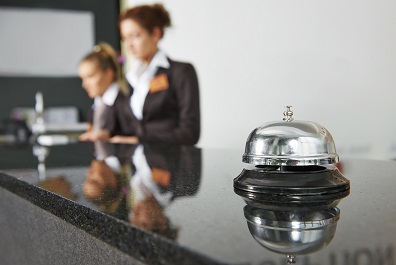
For the most part, the COVID-19 pandemic put a hold on hospitality and travel services all over the world. According to the American Hotel & Lodging Association (AHLA), the virus’s impact on the industry has been nine times that of 9/11.
In 2021, now that a coronavirus vaccine has been developed and made readily available to those in the United States, it appears as if life is returning to some semblance of normality.
Restrictions are gradually being lifted and more people are becoming comfortable with the thought of traveling once again—which means that, as a hotel owner or operator, you might be faced with the challenge of “restarting” your business.
Here are seven important tips that will help hotel owners and operators adjust to the new normal in 2021.
1. Revamp Your Website
If your experience was anything like that of most hotel owners and operators, the recent pandemic left you with an unusual amount of free time.
Even as you are waiting for the hospitality industry to bounce back in full, you might not be nearly as busy as you once were. Take this opportunity to revamp your hotel’s website.
Perform a full site audit, reviewing the overall health of your website and the relevancy of your content. Are there any broken pages or links that need to be fixed? Is all your information up to date? Are your COVID-19 policies available for users to view online?
2. Invest in a Seamless Online Booking Process
Understandably, many people are still wary of in-person interactions—especially those that can be avoided, as is the case with hotel bookings. Fortunately, this is also good news for you and your business, as an in-person booking is extra work for your staff.
Take some time to develop a seamless online booking process for your hotel. This starts with your website. Make sure that your entire site is easy to navigate, that your messaging is clear, and that there are as few hurdles as possible to book a room at your hotel.
Next, make sure your hotel is listed on as many booking and travel websites as possible. Of course, this includes confirming that your information is up to date and accurate on all directories. This will help prevent any booking errors or miscommunications with potential guests.
3. Don’t Neglect Marketing Needs
In April 2020, hotel occupancy stooped to 24.5 percent—a historic low that ultimately caused many hotels to close their doors indefinitely. Like most businesses, your hotel may have some significant financial ground to make up in 2021.
While you are tightening up your budget and looking for line items to cut or reduce, you may consider dialing back your marketing efforts. After all, you might be anticipating that customers will be more eager to book at your hotel after a long period of not being able to travel.
However, there are plenty of marketing activities that need your attention, even as you are emerging from a pandemic. As there is still some level of ambiguity about which businesses are open and which ones are keeping their doors closed, you need to use your traditional marketing channels to get the word out to potential guests.
4. Key in on Local Customers
In 2020, airline passenger totals dropped by 60 percent. While much of the airline industry has been able to bounce back from the initial impact of the COVID-19 pandemic, the reality is that it will be a while before international travel returns to normal.
This means that domestic customers should remain your primary focus until further notice. Rather than marketing abroad, set your sights on those in your own backyard.
After a year filled with canceled events and quarantine periods, more and more people are content with taking staycations—short, simple getaways at nearby locations.
5. Improve Your Duty of Care Policies
Coming out of a pandemic, health and safety is of the utmost importance for so many guests. Before booking your hotel for their vacations and events, they want to know that you are doing everything within your power to prioritize their health and wellbeing.
Of course, this begins with updated Duty of Care policies. The next revision to your protocol and procedures should reflect the high standard of cleanliness that customers expect.
Some of the adjustments you can implement include more frequent cleanings, temperature checks, social distancing of employees, and more contactless features. Also, be sure to outline clear procedures to follow if there is a potential COVID-19 case at your hotel.
6. Catch Up on the Latest Technology
For years, the hotel industry has flirted with the concept of going digital. McKinsey & Company predicts that COVID-19 will only accelerate the transition to digital services.
With roughly a year removed from business as usual, the reality is that your hotel might now be behind on technological trends—especially in areas that guests are prioritizing after COVID-19, such as remote check-in and mobile room entry.
On an even greater level, certain hotels are investing in new air filtration systems and cleaning robots to make their rooms even cleaner and safer for guests.
Educate yourself on the latest trends and determine which upgrades you’re able to make at your hotel. As more and more guests are opting for contactless experiences, implementing certain features could be the difference between a guest choosing your hotel or your competitor’s hotel down the street.
7. Continue to be Flexible
If the COVID-19 pandemic taught us anything, it is that things can change in an instant. As a hotel owner or operator, it is in your best interest to be flexible amidst ongoing uncertainty.
The reality is that a guest might contract COVID-19 (or another illness) between the time when a room is initially booked and the date of his or her stay. Updating your cancellation policy with special provisions for those who happen to contract COVID-19 can go a long way towards earning the business of guests.
If you are concerned that this type of adjustment might disrupt your business’s cash flow during uncertain times, you might consider offering a credit or other incentives outside of a cash refund.







